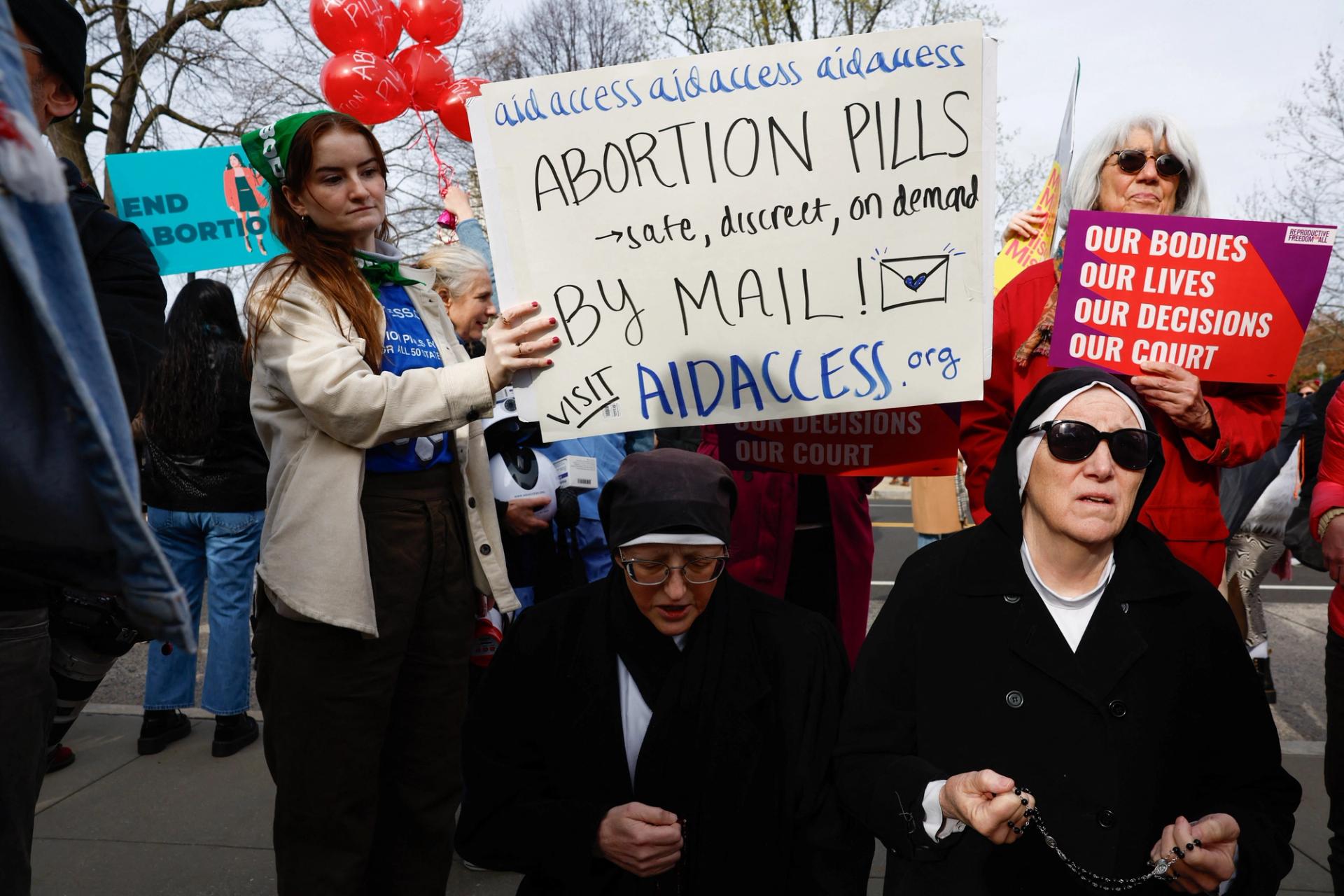The News
The U.S. Supreme Court on Tuesday seemed unlikely to restrict access to one of two pills used in more than half of U.S. abortions, questioning whether courts should second-guess the Food and Drug Administration’s judgment on the safety and efficacy of medications.
The court heard arguments in the case brought by anti-abortion doctors and groups after an appeals court ruled that the FDA had improperly expanded access to the drug mifepristone by making it available through mail and allowing it to be prescribed by medical professionals who aren’t doctors.
The drug, used in dozens of countries and approved for sale in the U.S. since 2000, has come under increased scrutiny since the Supreme Court struck down Roe v. Wade in 2022.
Both conservative and liberal justices questioned whether the anti-abortion doctors and groups even had legal standing in the case. However, they appeared split along ideological lines on the question of whether the court should intervene in FDA decision-making, with Justice Samuel Alito asking, “Do you think the FDA is infallible?,” while Justice Ketanji Brown Jackson questioned if “courts have specialized scientific knowledge with respect to pharmaceuticals?”
The outcome could have far-reaching implications for abortion pill access in the country. Patients could still terminate pregnancies by using the other drug in the two-pill regimen, though that would be less effective and risks more side effects.
SIGNALS
Justices question if anti-abortion doctors claims’ were sufficient to bring case
The majority of justices seemed skeptical that the group of anti-abortion doctors and organizations who brought the case had legal standing to do so. The plaintiffs claimed that doctors who objected to abortion care could suffer psychological harm from treating women experiencing abortion complications.
An attorney and former Supreme Court clerk argued in in his legal newsletter: “If treating a patient makes you feel ‘complicit’ in whatever the patient did to come to the emergency room, being an emergency room doctor is not the job for you.” Justice Neil Gorsuch questioned if this case could be “a prime example of turning what could be a small lawsuit into a nationwide legislative assembly on FDA rule or any other federal government action.”
If the court rules against the FDA, other medications could be at risk
If the court rules that the FDA acted inappropriately by expanding access to mifepristone, it could invite ideological challenges to other medications such as contraceptives, hormone blockers used for gender-affirming care, and the COVID-19 vaccine, legal experts and the U.S. government warned. “This is an abortion case but at root it’s an FDA case,” a professor of medical ethics told STAT News.
If anti-abortion groups win the case, “anyone with an ideological disagreement, coupled with a scientifically untrained judge, could challenge the FDA’s authority,” said one physician who signed a brief supporting the FDA.
Biden campaign could get boost if ruling restricts pill access in blue states
This case is unusual within the current legal battle over reproductive health care because it could restrict access to the abortion pill in both red and blue states. “It’s an extremely significant case in that it would affect states where abortion is legal and states where it’s not,” Mary Ziegler, a law professor at the University of California at Davis, told TIME.
The political repercussions of any new abortion restrictions ahead of the presidential election could be “as consequential as Dobbs was for the midterms,” said Alexis McGill Johnson, president of the Planned Parenthood Action Fund. “Going into the summer with a negative ruling by Trump’s Supreme Court, essentially, I think would turn the tide even more in stronger favor for the Biden-Harris administration,” she told The Washington Post’s Early 202.

